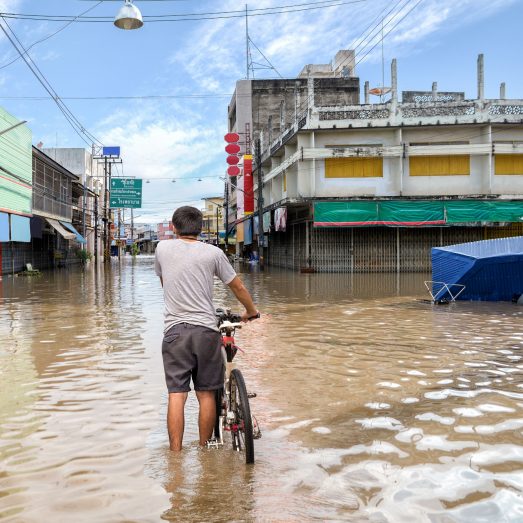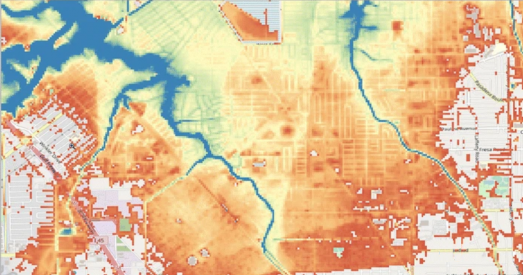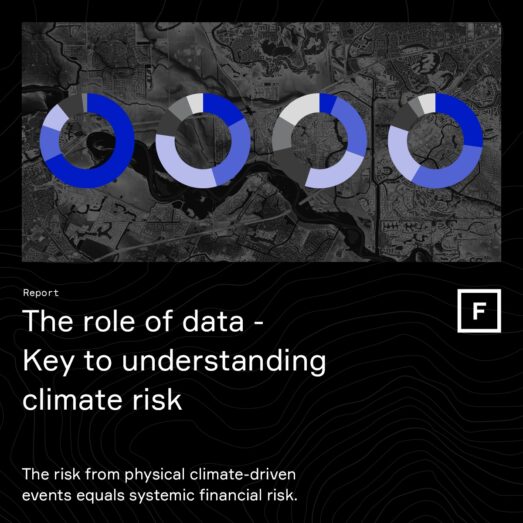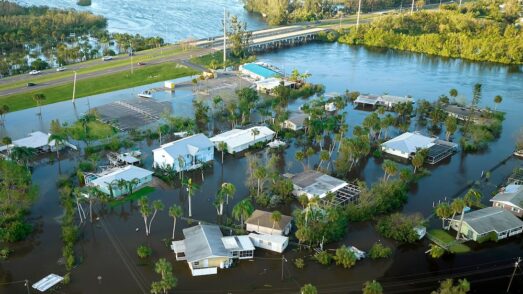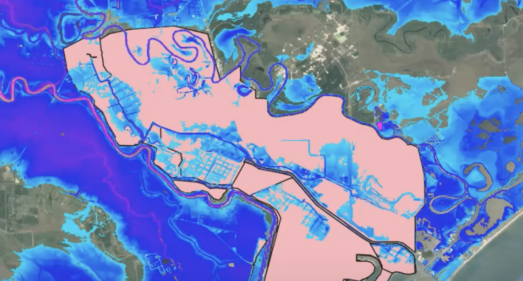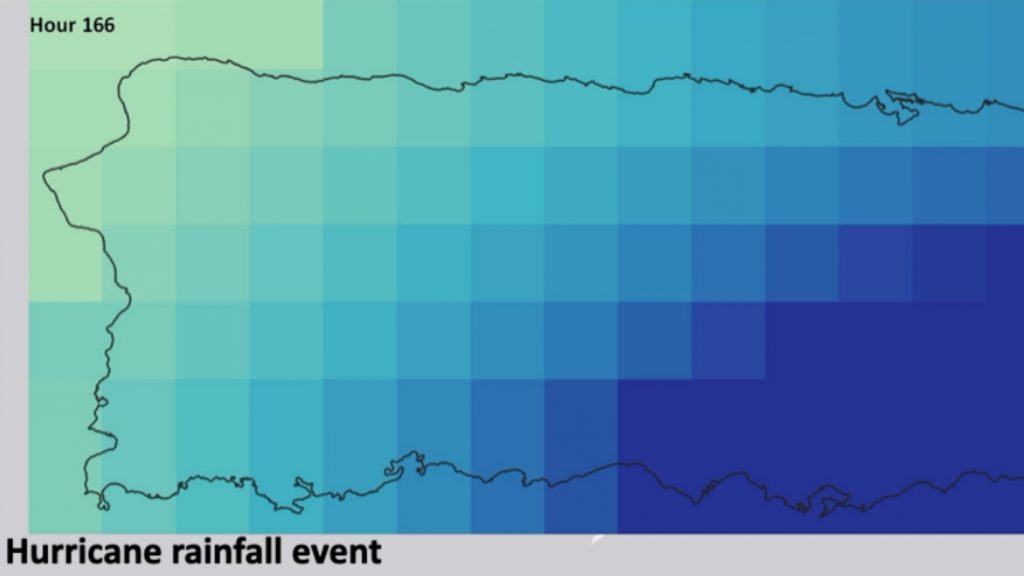
Held between 31st October and 12th November in Glasgow, COP26 is an international climate change conference held by the UN. The event brings together politicians and leaders to discuss progress towards climate goals, such as the Paris Agreement, in which all countries agreed to limit global warming to under 2 degrees.
As flood risk experts we are keen to follow the developments of COP26, and showcase our understanding of the effects of climate change on flood-related hazards. Our flood hazard data has shown that between 2020 and 2050 some areas of the UK may be facing an increase in flood risk of more than 50%.
Our Chief Research Officer, Dr Oliver Wing, conducted analysis on output from Fathom-UK’s climate scenarios for the present day and 2050. This analysis projects that at least 1.35 million properties would be at substantial risk of flooding by 2050, a rise of 24% from 2020.
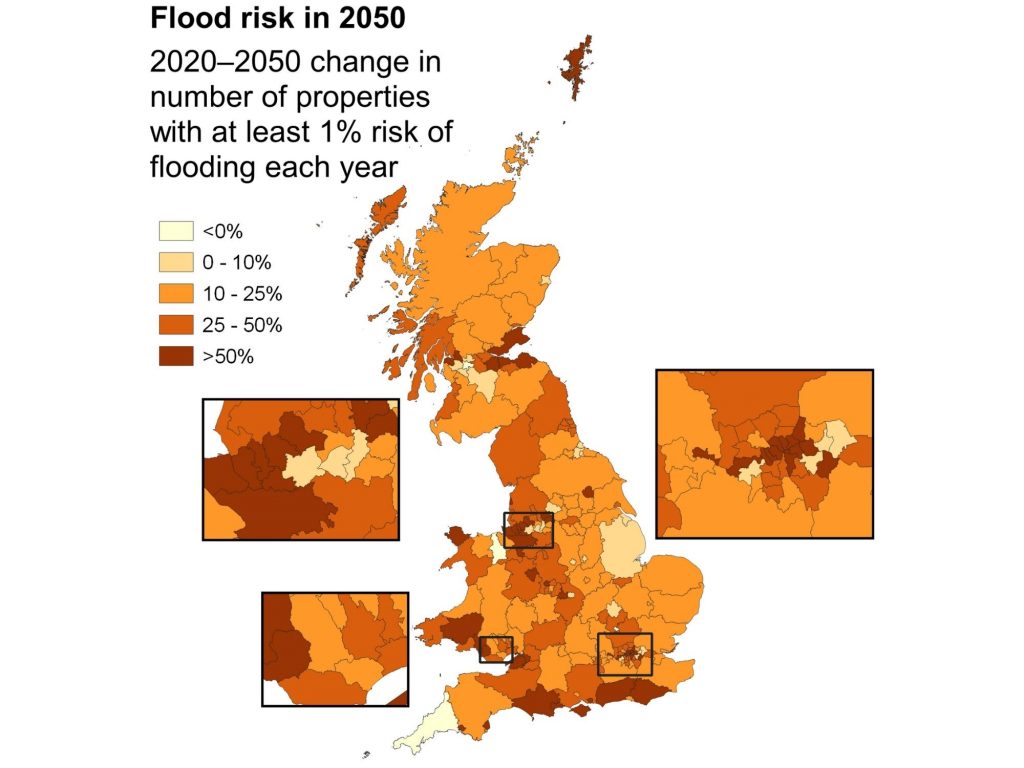
It’s no secret that academic research and innovation is highly valued at Fathom. After all, Fathom was born out of the University of Bristol Hydrology Group, and members of our technical team continue to maintain strong academic credentials. In the spirit of COP26’s youth and public empowerment day, we are shining the spotlight on student researchers, Laura Devitt and Leanne Archer, who are emerging in the field of hydrology.
Laura Devitt
After graduating with an MScR in Physical Geography, Laura Devitt is now in the third year of her PhD project titled, “Understanding hydrological uncertainties of large-scale flood hazard mapping”. This research project is supervised by Dr Jeffrey Neal, Dr Gemma Coxon, and Professor Thorsten Wagener, and draws on Fathom’s global flood model.
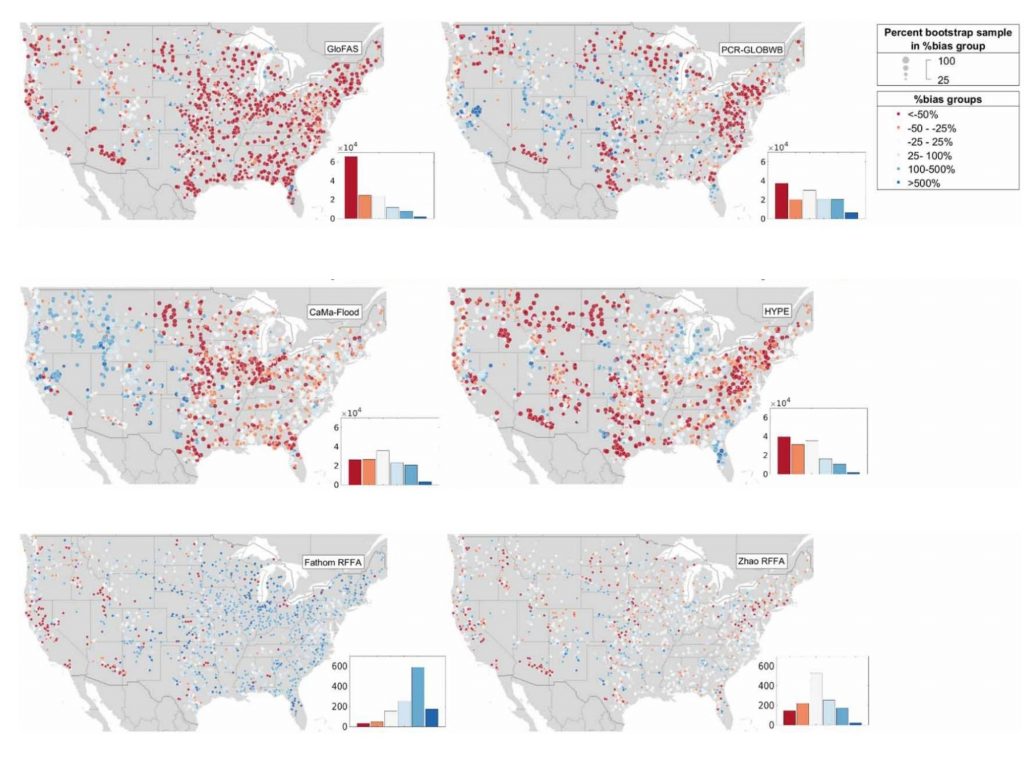
Devitt’s first academic paper was published this year on methods used by global flood modelling groups to produce estimates of extreme discharge. This paper looks at uncertainty in extreme flood magnitude estimates of flood hazard models.
Utilising our global flood model as part of her research, Devitt is mapping the global sensitivity of floodplains to increasing flow magnitudes:
“One of the research aims of this paper is to try and identify regions of the world that are very sensitive to increasing flows, as these may be the places that are most at risk in the future to climate change. I’m hoping to also intersect this data with population data to map the sensitivity of exposure to increasing flow magnitudes.”
A recurring roadblock that can be found with flood risk and hazard mapping is having the access to the same quality of data globally. This challenge motivated Devitt to conduct her research on the subject.
“My motivation for wanting to do this PhD stems from an interest in being able to make predictions of hydrological extremes in data-scarce places in the world. The exponential growth in globally available data has meant that we can now make flood risk predictions in places in the world where no local data exists. However, with this global-scale flood risk modelling comes a large number of uncertainties. Therefore I became interested in wanting to understand some of these uncertainties and trying to identify parts of the world that may have considerable impacts on flood risk predictions.”
To find out more about Laura Devitt’s research, you can read more on her work below.
WISE (Water Informatics Science & Engineering) profile
Leanne Archer
After being awarded the Fawcett Prize for Outstanding Achievement in her undergraduate degree in Geography at the University of Southampton, Leanne Archer proceeded to complete an MScR project on digital elevation models and flood estimation and is now amid her NERC GW4+ (National Environment Research Council) PhD, supervised by Fathom’s Chairman, Professor Paul Bates, and our Chief Research Officer Dr Jeffrey Neal.
Archer’s PhD research investigates how to improve the quality and availability of flood risk estimates within Small Island Developing States. Identified as some of the most at-risk countries to the effects of climate change, Archer decided to conduct her research on this to inform resilience planning.
“Small islands are some of the most at-risk countries in the world to climate change, but the scientific information needed to inform climate adaptation and risk assessment are limited. My current research focuses on developing an event set of pluvial flood hazard and exposure estimates associated with hurricane rainfall in Puerto Rico under 1.5C and 2C climate change. This work will detail the first known event set of flood risk in a small island under climate change.”
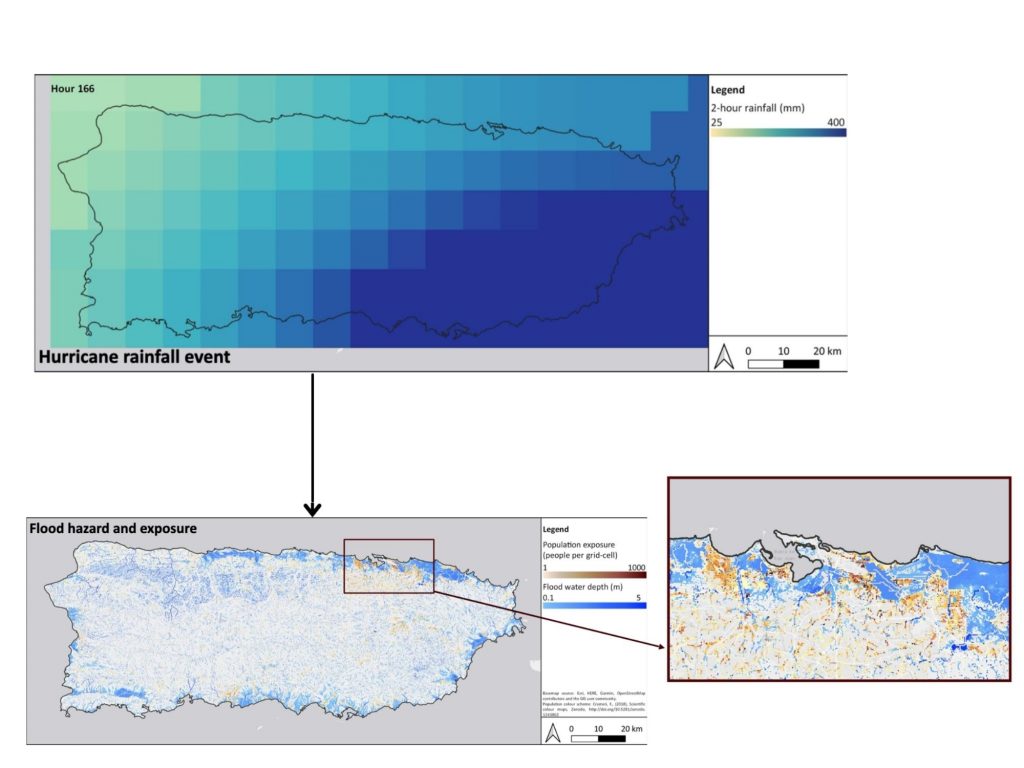
As a member of the Cabot Institute for the Environment, Archer has published several articles related to her PhD study and topical issues. Archer’s latest blog post centered on the impact of COP26 goals and small developing islands (SIDS), where she discussed how reaching the four climate emergency goals is crucial for SIDs in particular.
Archer decided to study for her PhD in this area as she had a strong desire to gain an understanding of the way that the planet is changing, and make a meaningful difference.
“Originally studying Geography at undergraduate level, I have always had a strong desire to understand our changing planet. But I didn’t always feel like I knew how I could meaningfully make the world a better place. Studying for a PhD with Dr Jeffrey Neal and Professor Paul Bates was one way I realised I could have an impact, as I saw how their science has a positive impact on the world every day. Combining my love for all things GIS, climate action, and science, studying for a PhD at the University of Bristol was a perfect fit.”
To find out more about Leanne’s research, take a look at her profiles and blogs below.
University of Bristol research profile
Cabot Institute: The COP26 Goals and Small Island Developing States
World Water Day: Climate change and flash floods in Small Island Developing States
Follow us on LinkedIn and Twitter for the latest updates on our COP26 campaign.
